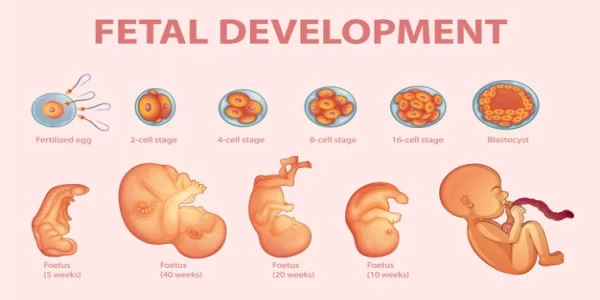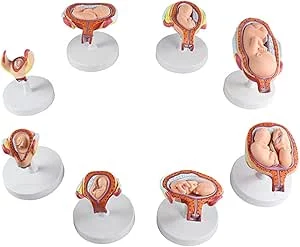Helping preschool children understand the origin of babies is not just about answering a question, but also an opportunity to build correct awareness, help children develop scientific thinking, and respect their bodies. Parents often face challenges in explaining such a sensitive topic in a way that is appropriate for the child’s age. Below are some suggestions and scientific information to address this issue.
“Children in preschool age are naturally curious about everything around them, including questions about life and how babies are born.” This is completely natural, as this is the stage when children develop thinking skills and form an understanding of the world. According to the American Psychological Association (APA, 2018), answering these questions honestly and appropriately for their age helps children develop confidence and reduces confusion in the future.
To answer the child’s question, you can start with basic concepts about the body and family relationships. For example, explain that a baby is formed in the mother’s body through a special combination from both parents. The language used should be simple, gentle, and avoid overly complex details. An effective approach is to use images or toys to illustrate.

Additionally, age-appropriate illustrated books can be a great tool for support. Dr. Robie Harris in the book It’s Not the Stork! (Harvard, 2006) introduced how to use illustrations to explain the creation of life, which has been highly effective in educating preschool children.
“Using books and illustrations not only helps children understand more easily but also creates an open communication space between parents and children.”
An important factor is that parents need to listen and understand the level of interest the child has. Not every child needs detailed answers, so let the child lead the conversation. According to the National Society for the Prevention of Cruelty to Children (NSPCC, 2020), the best way to answer children’s questions is to listen carefully and provide just enough information to encourage positive curiosity.

Don’t forget to emphasize the wonder of life, helping children understand that the formation of a baby is a wonderful process, bonding love within the family. This understanding not only has educational value but also helps children appreciate the value of family relationships. Over 85% of children aged 4-6 respond positively when receiving simple and truthful information from their parents (Survey by the American Child Development Institute, 2019).
By using a gentle, age-appropriate approach, parents can turn these “difficult” questions into valuable educational opportunities, helping children not only understand but also develop comprehensive thinking skills.


HPX24h > Parenting Tips > The Way to Help Preschoolers Understand How Babies Are Made
Tagged Articles
Tips for Helping Preschoolers Develop Healthy Sleep Habits
Top Reads from This Category
Parenting Tips
How to Talk to Your Child About Divorce: Helpful Tips for Parents
Parenting Tips
Causes and Solutions for Aggressive and Strong-Willed Behavior in Children
Parenting Tips
How Much Sleep Do Children Really Need?
Parenting Tips
Why Your Child Might Be Coughing Disruptively During Sleep?
Parenting Tips
Why You Can’t Force Your Child to Live the Way You Do?
Parenting Tips
Why Do Preschoolers Have the Habit of Nose Picking?
Parenting Tips
How to Talk to Children About Poverty and Homelessness (Ages 5-8)
Discover New Topics
Science
Mind-Controlled Prosthetics: A Groundbreaking Advancement in Medicine
Health
Are ‘Forever Chemicals’ Present in Bandages? How This Could Affect Your Health
Parenting Tips
Fun Facts for 3-Year-Olds: Exploring the World of Animals and New Foods
Fitness
Exercise – The ‘Miracle Cure’ to Awaken Overall Health
Health
What Does a Right-Side Headache Indicate About Your Health?
Parenting Tips
Excessive Night Sweating in Children – A Normal Occurrence or a Cause for Concern?
Animals
The Secret Behind Turtle Eggs Hatching at the Same Time: A Fascinating Reason
Fitness
Effective Workout Tips: The Best Full-Body Exercises for Health
Healthy Eating
Gallbladder Protection Through Diet: Expert Guide and Practical Tips
Parenting Tips
The Way to Help Preschoolers Understand How Babies Are Made
Healthy Eating
Essential Nutrition: The Golden Key to Comprehensive Health
Health
E. Coli In The Gut May Trigger A ‘Chain Reaction’ Leading To Parkinson’s Disease
Science
Cow-Free Milk: The Food Revolution Shaping Our Future